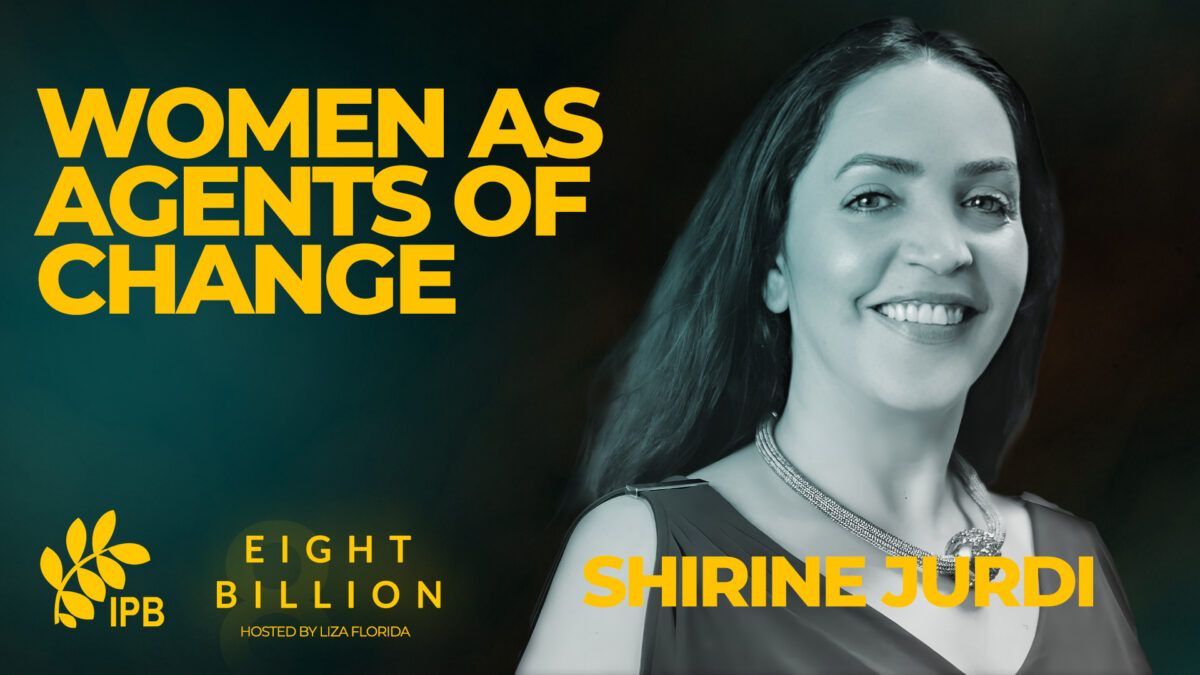This episode brings you a powerful and unflinching conversation with Shirine Jurdi, a global advocate for women, peace, and security from Lebanon. Prepare to challenge your perspectives as Shirine dismantles the narratives often imposed on women in conflict zones, offering a raw and honest look at the realities of war, justice, and the fight for a life of dignity, not just survival.
In this essential episode of the Women as Agents of Change podcast, Liza Florida connects with Shirine Jurdi, President of the Lebanese section of the Women’s International League for Peace and Freedom (WILPF). Shirine shares how her childhood experiences during the 1982 Israeli invasion of Lebanon shaped her lifelong mission for a just peace. She offers a critical analysis of how Lebanon’s colonial and sectarian history has created systemic barriers to gender equality, challenging the external perception of Lebanon as a progressive nation for women.
This conversation goes to the heart of what true solidarity means. Shirine powerfully rejects the label of “resilience,” arguing it romanticizes suffering and absolves the world of its responsibility. Through personal stories, including a heartbreaking realization from her young nephew, she illustrates the deep psychological scars of perpetual conflict. This is not a story of victimhood; it is a demand to be seen as a leader, a call for the international community to stop, listen, and co-create solutions rooted in human rights and genuine care.
Key Topics Covered
- A Childhood Shaped by War: How surviving the 1982 Israeli invasion as a child ignited Shirine’s sense of purpose and advocacy.
- The Myth of Progressiveness: A critical look at the gap between the perception of Lebanese women’s freedom and the lived reality of legal and political inequality.
- Legacy of Colonialism: How Lebanon’s confessional political system, a remnant of its colonial past, continues to marginalize women and prioritize sectarian loyalty over citizenship.
- Resisting “Resilience”: Shirine’s powerful argument against the term “resilient,” explaining why it is a harmful label that normalizes hardship and injustice.
- The Trauma of War on Children: A moving story about her nephew’s cynical view that “they don’t care,” revealing the profound psychological impact of conflict on the next generation.
- Women as Agents, Not Projects: A call to shift from tokenistic, donor-driven projects to centering women as knowledgeable leaders with causes, not cases.
- A Demand for True Solidarity: Why messages of support, ceasing arms shipments, and collective advocacy are critical lifelines for those living under bombardment.
- Adaptive, Localized Action: The importance of balancing global agendas with local needs and being flexible enough to pivot strategies when war breaks out, as seen with her work on small arms.
Powerful Quotes from Shirine Jurdi
- “You do me harm when you call me resilient. It means that you agree to my hardship. I don’t want to be resilient. I deserve to have a proper life.”
- “We love life. We want to live in peace, but just peace, which is centered as a human rights approach away from fear.”
- “Don’t look at me as a victim. Look at me as a leader. Look at me as your sister.”
- “With my privileges, I want to do an impact. It’s not tokenism. It’s… what you do in life that can make really an impact on your community.”
- “We need to rehumanize our policies and to have also these children as centered, like their dignity.”
- On her nephew’s reaction to the war: “He said, ‘No, because they don’t care.’ And I could never forget this. They don’t care.
Watch Now on Youtube:
Listen on your favorite podcast platform:
Innovative Projects & Global Initiatives
Women Peace Tables: A responsive project by WILPF Lebanon and Peace Women Across the Globe, shifted from a focus on small arms to creating safe spaces for displaced women to share their immediate needs for safety and dignity during the war.
Young Women Plus Leadership Network: An inclusive network Shirine established for young Lebanese, Palestinian, and Syrian women and men to co-create agendas and build bridges between communities.
Local Mediation Unit: An initiative to institutionalize a mediation unit within a local women’s organization, demonstrating a model for linking international peace frameworks with grassroots needs.
Connect with Shirine Jurdi
Shirine Jurdi is a leading voice in the Women, Peace, and Security movement. To follow her work with WILPF Lebanon and support the call for a just peace, you can connect with her directly:
LinkedIn: https://www.linkedin.com/in/shirine-jurdi-92439027/
Connect with Liza Florida
Instagram: @lizaflorida and @eightbillionproject
Facebook: https://www.facebook.com/eightbillionpodcast/
LinkedIn: https://www.linkedin.com/in/liza-florida-07597119
Website: https://lizaflorida.com/
Special Thanks
To Shirine Jurdi for her courage, her clarity, and her powerful testimony. Thank you for sharing your truth and for your tireless work to build a more just world.
To the International Peace Bureau for their partnership and support for this podcast series. You can learn more about their work at https://ipb.org/ and see more on their YouTube channel.
To the women peacebuilders and human rights defenders in Lebanon and across the globe who stand for justice in the face of conflict.
To our listeners, may this episode move you to listen more deeply, challenge harmful narratives, and find your role in building collective solidarity.
About the Series
Women as Agents of Change is a special podcast series hosted by Liza Florida, presented in collaboration with the International Peace Bureau and Eight Billion Project. Each episode celebrates the wisdom, vision, and courage of women working to build a more peaceful and just world.

